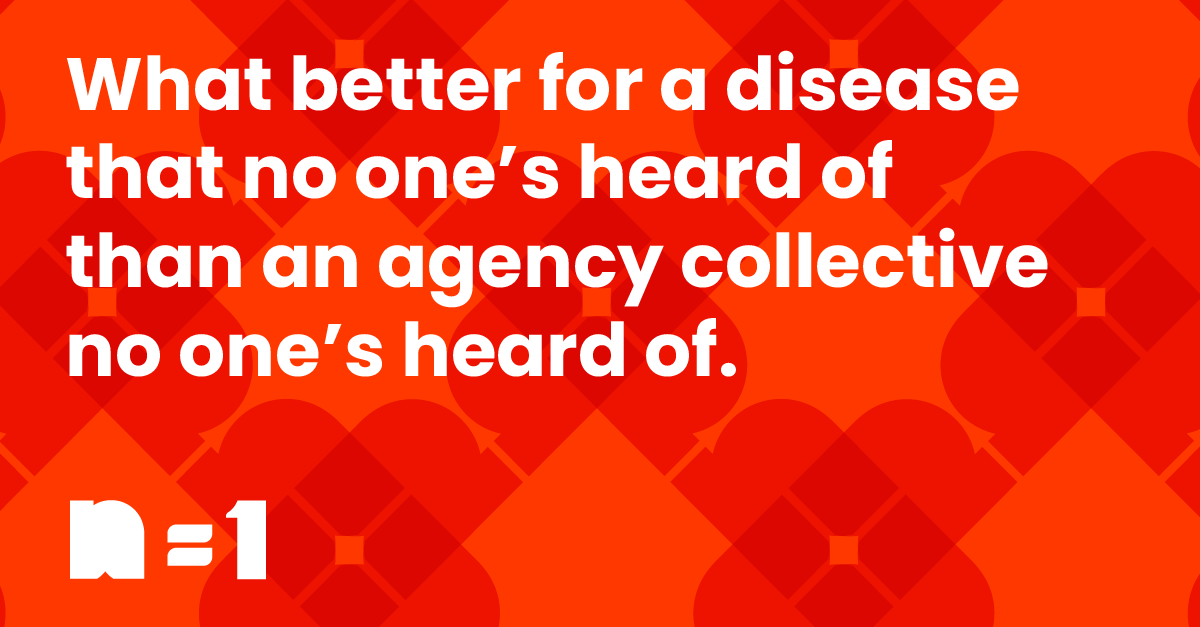Customer Faithful joins launch of rare diseases multi-agency offer called n=1
Five agencies, powered by the Omnicom Group, today (28 Feb 2022) launch a new offer called n=1 to support clients and organisations working specifically in the rare disease community.
This unique agency collective is spearheaded by senior leads at agencies CDM, Portland Communications, Synergy, Customer Faithful and Lumen. Together, the agencies combine decades of experience working across the rare disease landscape.
Identifying a unique client need, and rich experience within each agency’s Healthcare teams, n=1 combines different specialist insight to build a tailored, intimate and useful approach to tackle the challenges faced by those living with and treating rare diseases.
n=1 will offer clients the opportunity to access expert counsel from all agencies when desired, at any point on their journey, on issues from how to best utilise AI in understanding patient experience, to how grassroots advocacy is reshaping market access – and everything in between.
Jon Linscott, Partnership Development Director, CDM, said, “We’re a collective group of communication and engagement experts, united by a passionate belief that engagement and communications in rare diseases demands specific multi-disciplinary skills to meet the unique needs and opportunities of our clients.”
“R&D in rare diseases often pushes the boundaries of our medical knowledge” said Jenny Carrington-Elson, Director, Portland Communications. “By partnering together as n=1, we want to focus on communicating the science and value of these ground-breaking innovations, while listening to the individual patient experience. We believe this offers life-changing opportunities to tackle the enormous challenges faced by the rare disease community.”
The collective will provide end-to-end communication and engagement services: from using AI to map patient journeys, to market-shaping activities, to social media attitudinal mapping, to changing the way healthcare systems recognise and reimburse rare conditions, to full integrated campaigns and grassroots advocacy – and beyond.
The n=1 team can be contacted for a chat here.
[ENDS]
1. Evaluating the Orphan Regulation and its impact on patients and rare disease R&D in the European Union. Available at: http://www.pugatch-consilium.com/reports/Benchmarking_success.pdf
Media contact
Jenny Carrington-Elson, Portland Communications
Jenny.carrington-elson@portland-communications.com (+44) 7703 366 220
Notes to editors
30 million people in Europe live with a rare disease. The number of clinical trials focused on rare diseases increased by 88% between 2006 and 20161. Research and development into rare diseases is right at the cutting edge of science and technology and pushes the boundaries of medical knowledge. Many rare disease products use new technologies such as cell and gene therapies, antisense RNA interference therapy and monoclonal antibodies to precisely target the disease site.

